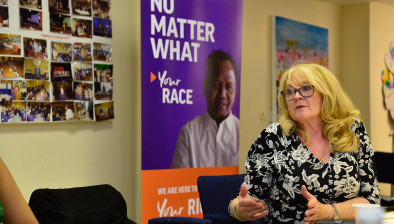England: Head of courts service apologises for disgraceful treatment of black barrister

The head of the courts service has apologised to a black barrister who was mistaken for a defendant three times in a single day at court.
Kevin Sadler, acting chief executive of HM Courts and Tribunals Service, promised to investigate the complaint of Alexandra Wilson, of 5SAH chambers.
Ms Wilson tweeted about her experience, saying she had been repeatedly misidentified as a defendant. Her book, In Black and White, deals with racism in the courts.
She was at first stopped by a security guard who “asked me what my name was so he could ‘find [my] name on the list’ (the list of defendants)”.
She was then told by a member of the public not to go into the courtroom and to wait for the usher to sign her in for cases. In the courtroom another lawyer told her to wait outside and see the usher.
At that point she approached the prosecutor. She said: “Before I got there the clerk, VERY loudly, told me to leave the courtroom and said the usher would be out shortly. Before I could respond she then asked if I was represented.”
“This really isn’t OK …” she tweeted. “I don’t expect to have to constantly justify my existence at work.”
In response, Mr Sadler tweeted: “I’m very sorry about your experience at court yesterday – it is totally unacceptable behaviour and I’m investigating the role of my staff and contractors as a matter of urgency. This is not the behaviour anyone should expect and certainly does not reflect our values.”
Amanda Pinto QC, chair of the Bar Council, said: “I fear Alexandra’s experience is not a one-off. Many barristers have to put up with the prejudiced assumptions of others – Alexandra has done so with exemplary grace and patience. I am speaking directly with HMCTS, the senior judiciary and the CPS [Crown Prosecution Service] immediately, urging more to be done to stamp out this behaviour.
“The barristers’ profession is always striving to be more representative of the society it serves. There is more to do to change the perception of the bar, but that is no excuse for the kind of attitudes and remarks described. We are not all white, middle-class men.”










